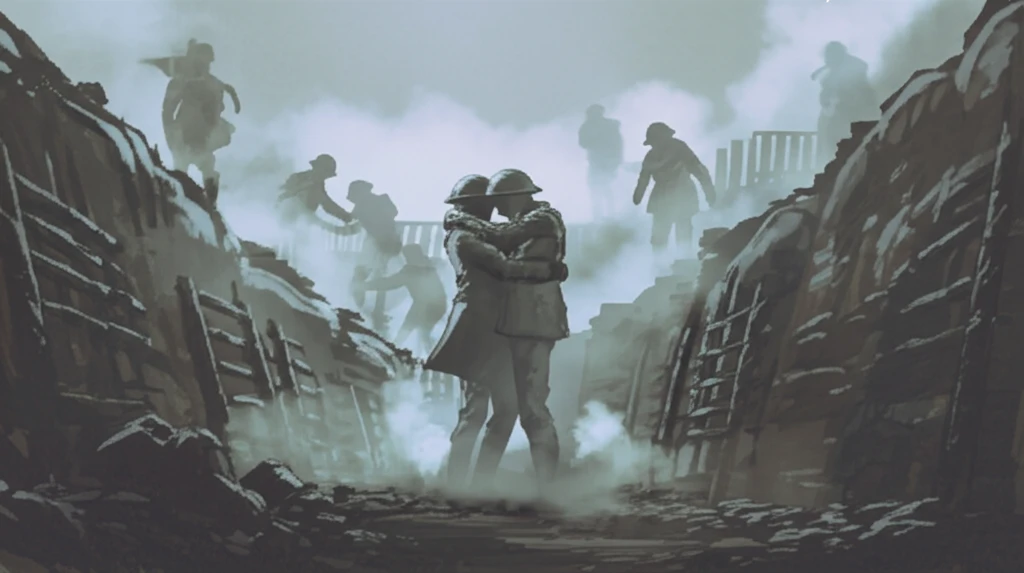
War's Hidden Wounds: Uncovering Queer Intimacy and Societal Scars in Pat Barker's Regeneration Trilogy
"Explore the untold stories of queer relationships and the lasting impact of war in Pat Barker's seminal work."
Pat Barker’s Regeneration Trilogy offers a powerful lens through which to examine the intricate relationship between war, sexuality, and societal norms. Set against the backdrop of World War I, these novels (Regeneration, The Eye in the Door, and The Ghost Road) delve into the lives of individuals grappling with the physical and psychological trauma of conflict. However, Barker’s work goes beyond traditional war narratives by spotlighting the experiences of queer individuals and the hidden intimacies forged in the crucible of wartime Britain.
By exploring the erotically charged encounters and same-sex relationships that flourished in the shadows of the Great War, Barker challenges conventional notions of heroism, patriotism, and national identity. Her novels reveal a world where queer affinities, often criminalized and condemned by society, provided solace, connection, and a sense of belonging for those marginalized by mainstream culture. These relationships, born out of shared experiences of trauma and displacement, offered a radical alternative to the heteronormative ideals promoted by the state.
This article delves into how Barker’s Regeneration Trilogy uncovers the ‘erotohistoriography’ of World War I, highlighting the war's impact on intimacy and social structures and exploring how queer relationships challenged and subverted the dominant narratives of the time.
How Did War Reshape Intimacy and Identity?

The First World War profoundly disrupted traditional social structures and personal relationships. As men were thrust into the trenches and women entered the workforce, gender roles became blurred, and societal expectations were challenged. This upheaval created a space for alternative forms of intimacy and connection to emerge, particularly among those who felt alienated from mainstream society.
- The disruption of traditional gender roles during wartime.
- The heightened emotional intensity of wartime experiences.
- The search for connection and understanding amidst trauma.
- The blurring of boundaries between friendship, camaraderie, and sexual desire.
Why Does Exploring Queer Narratives Matter in War?
Pat Barker’s Regeneration Trilogy does more than simply tell a story; it invites us to reconsider the narratives we tell about war and its impact on society. By foregrounding the experiences of queer individuals and exploring the hidden intimacies forged in the crucible of conflict, Barker challenges us to confront the complexities of human relationships and the lasting scars of societal trauma. In doing so, she offers a powerful and enduring testament to the resilience of the human spirit and the transformative power of connection in the face of adversity.
